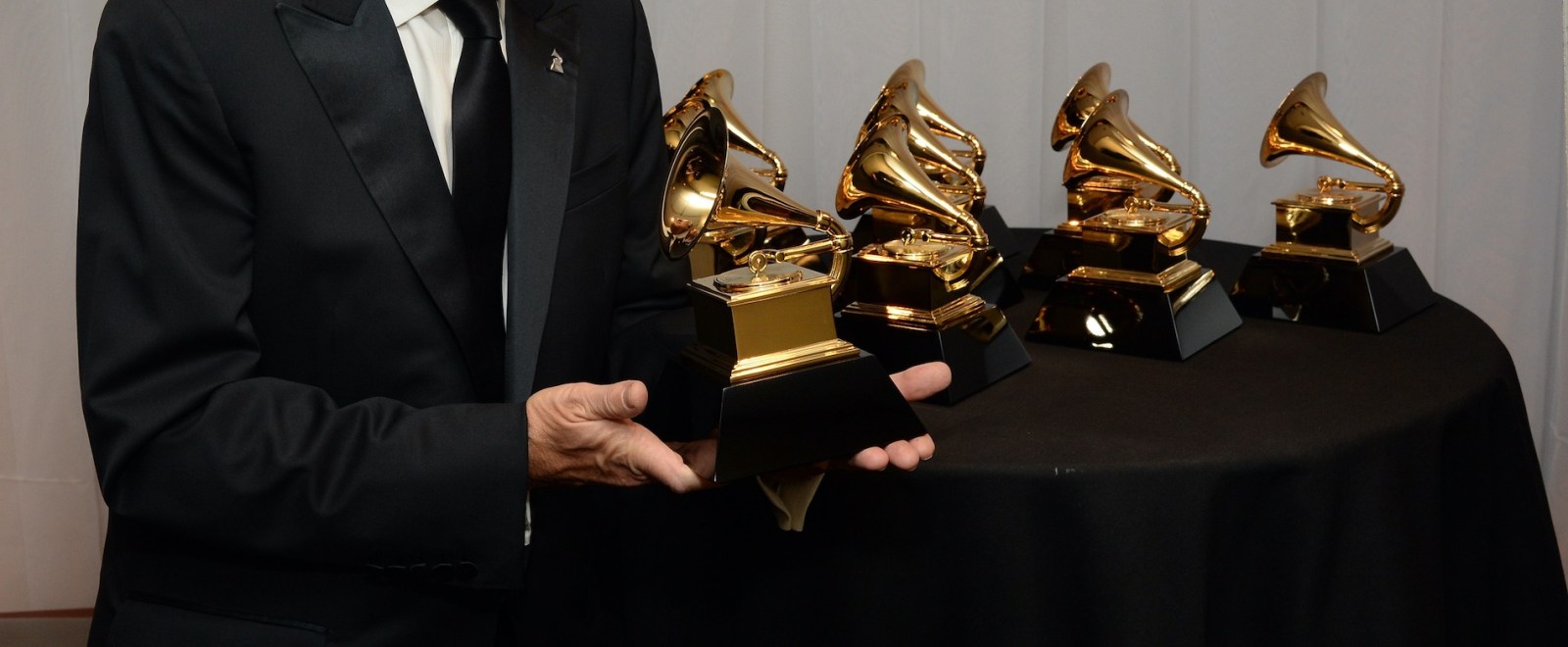
Over the years, multiple groups have felt that they haven’t been properly represented in the annual lists of Grammy Award nominations. On the 2021 list, for example, some thought the rap categories should have featured more women. There’s an apparent disparity in the Best Children’s Album as well, and some of the nominees are so bothered by it that they don’t want to be nominated at all.
A group of artists whose works are up for contention this year — Alastair Moock and Anand Nayak of Alastair Moock And Friends; Joe Mailander and Justin Lansing of The Okee Dokee Brothers; and Dean Jones, John Hughes, and Chris Cullo of Dog On Fleas — penned an open letter to the Recording Academy in December. In it, they requested that their “names be removed from final round ballots.”
Some of those nominees spoke about the situation on NPR this morning, with Mailander saying, “We thought that it was the strongest thing we could do, to stand with people of color whose albums are too often left out of the Grammy nominations. This is not just white guys with guitars playing for kids. We want to welcome all different types of music to this community.”
In the letter, the artists describe what they see as a trend of non-white artists being excluded from the Best Children’s Album nominations. The message notes:
“After a week of soul searching, discussions with our black, brown, and white peers, and consultations with our families, we, the undersigned nominees in this category have come to the conclusion that it’s in the best interest of our genre for us to decline our nominations. We respectfully ask that our names be removed from final round ballots.
We are deeply grateful to the Recording Academy and its voting members for the honor we’ve received, but we can’t in good conscience benefit from a process that has — both this year and historically — so overlooked women, performers of color, and most especially black performers.”
Read the full letter below.
“To the National Academy of Recording Arts & Sciences,
After a week of soul searching, discussions with our black, brown, and white peers, and consultations with our families, we, the undersigned nominees in this category have come to the conclusion that it’s in the best interest of our genre for us to decline our nominations. We respectfully ask that our names be removed from final round ballots.
We are deeply grateful to the Recording Academy and its voting members for the honor we’ve received, but we can’t in good conscience benefit from a process that has — both this year and historically — so overlooked women, performers of color, and most especially black performers.
Unfortunately, this year’s slate of all white nominees, only one of whom is female, is not an aberration for children’s music. In the past 10 years, only about 6% of nominated acts have been black led or co-led, another 8% or so have been non-black POC-led, and around 30% have been female-led. These numbers would be disappointing in any category, but — in a genre whose performers are uniquely tasked with modeling fairness, kindness, and inclusion; in a country where more than half of all children are non-white; and after a year of national reckoning around race and gender — the numbers are unacceptable.
We take full responsibility for putting ourselves in the position we’re in. We chose to submit and distribute our albums to voters, even as we were aware of this category’s past history of exclusion. We thought that this year — after recent national events, all the hard work of the Family Music Forward racial justice collective to bring attention to issues of diversity, equity and inclusion in our genre, and changes within the Academy itself designed to reduce bias — we might see a different outcome. We didn’t, and the results are frankly an embarrassment for the field of children’s music.
We know that there are proposed changes already being discussed for this category — due, at least in part, to the vocal efforts of Family Music Forward in bringing attention to this year’s results. If there’s a role for us to play in helping to create positive change in this category going forward, we’d like to be a part of that work. But we also recognize that changes going forward can’t alter the outcome of this or past years’ nominations.
We know that declining our nominations runs the risk of centering ourselves even further in this conversation. We’re prepared for that criticism if it means helping to bring attention to the problem. And, in order to make sure this story is told in a well-rounded way and not purely through a white lens, we commit to including black and brown leadership from our genre in any future press interviews that may arise from our nominations, or our declining of them.
We’re hopeful that our statement today can be a small part of helping to heal some of the pain and anger amongst our peers, and that it will help bring us closer as a community. We don’t pretend to have the answers, but we want to be part of the solution. We feel sure that, if we work together in the coming months and years, we can arrive at a better place for children’s music — one that better serves all performers and families.
Sincerely,
Alastair Moock & Anand Nayak (Alastair Moock and Friends)
Joe Mailander & Justin Lansing (The Okee Dokee Brothers)
Dean Jones, John Hughes, Chris Cullo (Dog on Fleas).”
Yesterday, the Okee Dokee Brothers, Dog on Fleas and I wrote the attached to the Recording Academy respectfully declining our nominations + asking for our names to be removed from the final ballot. We haven’t heard back – regardless, we ask voters to please not vote for us.
pic.twitter.com/jFc0c2sWEg
— Alastair Moock (@AlastairMoock) December 10, 2020

